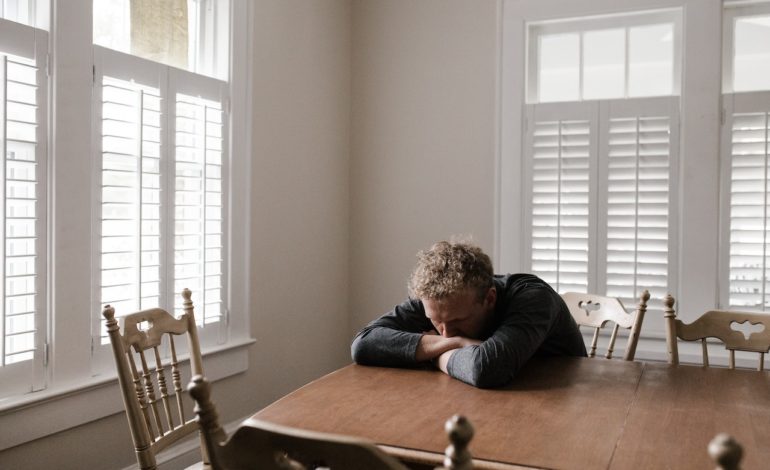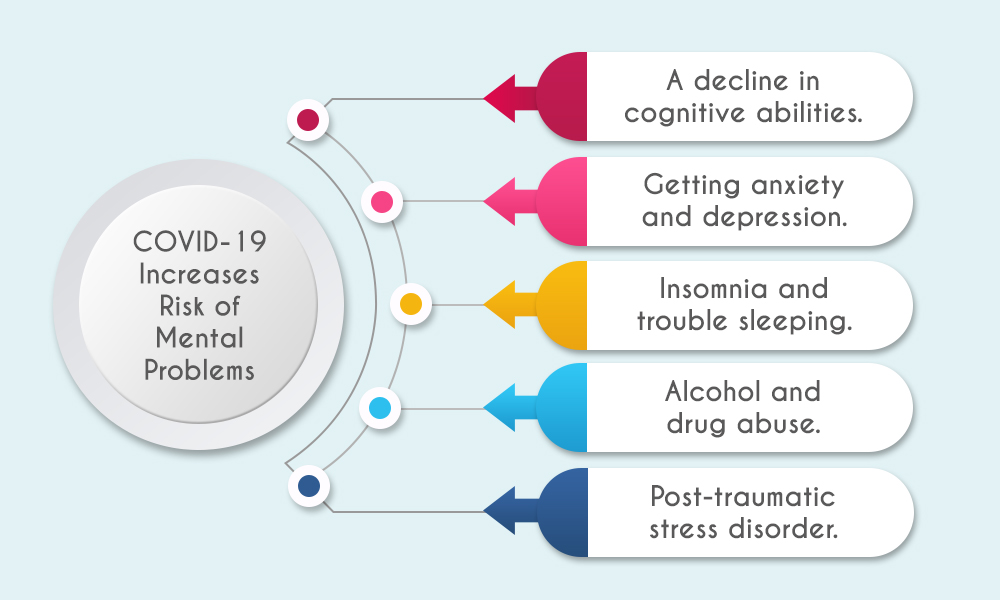
Mental Health Toll and Depression from COVID-19
COVID-19 has created a global mental health crisis. People have had to deal with social isolation and the loss of financial security. Many have experienced mental health issues, including anxiety and depression from COVID-19.
Depression has led to some people increasing their alcohol and drug use. This article will discuss how COVID-19 often leads to mental health issues and how to cope with them if they affect you.

COVID-19 Increases Risk of Mental Problems
After contracting COVID-19, people can have symptoms for weeks or months that may worsen with exercise or mental activity. Recovering patients are more likely to suffer from mental illness, which may lead to substance abuse. After a COVID-19 infection, people have an increased risk of:
- A decline in cognitive abilities.
- Getting anxiety and depression.
- Insomnia and trouble sleeping.
- Alcohol and drug abuse.
- Post-traumatic stress disorder.
How COVID-19 Affects Mental Health
COVID-19 affects a person’s mental health due to the trauma, fear, and uncertainty of the infection. A person’s immune response to the virus may cause changes in the brain’s chemical composition. All these factors can manifest as mental health disorders.
Nowadays, people experience psychological and physical stress. Feeling stressed and worried during a crisis is normal because everyone reacts differently. However, some people may find it difficult to cope with daily life challenges.
How To Cope With Anxiety and Depression
Recovering patients have an increased risk of developing neurocognitive decline and depression from COVID-19. Be sure to perform daily self-care strategies to improve both physical and mental health. Follow these tips to help friends and family cope with the pandemic.
- Learn to relax. Avoid spending too much time on social media or reading news stories. Spend a few minutes in silence to relax and release any anxiety.
- Make health a priority. Participate in a movement-based activity, such as dancing or physical exercise. Research shows that regular exercise improves a person’s mood and reduces anxiety.
- Avoid smoking. Smoking tobacco or vaping increases the risk of lung disease and contracting COVID-19.
- Talk to people. Stay social by connecting with people online, by phone, or by email. When feeling anxious, talk to family members or someone trustworthy.
What To Do When Dealing With a Mental Health Crisis
Nobody should suffer in silence. Seek professional help when mental conditions worsen with thoughts of self-harm and suicide. Use the following resources for immediate response:
- SAMHSA’s National Helpline
- 988 Suicide & Crisis Lifeline (Dial 988 on your phone)
- The Partnership for Drug-free Kids Helpline via drugfree.org or by phone at 1-855-378-4373
The Keener Law Firm Supports People Suffering From COVID-19-Related Mental Illnesses
The Social Security Administration offers disability benefits to people who have suffered financial loss due to mental health issues or depression from COVID-19. At The Keener Law Firm, we can help file a claim for people who can no longer work. To find out if you qualify and for more information about COVID-19 disability benefits, contact us for a free consultation by calling 770-955-3000 or visit us online at www.KeenerLaw.com.